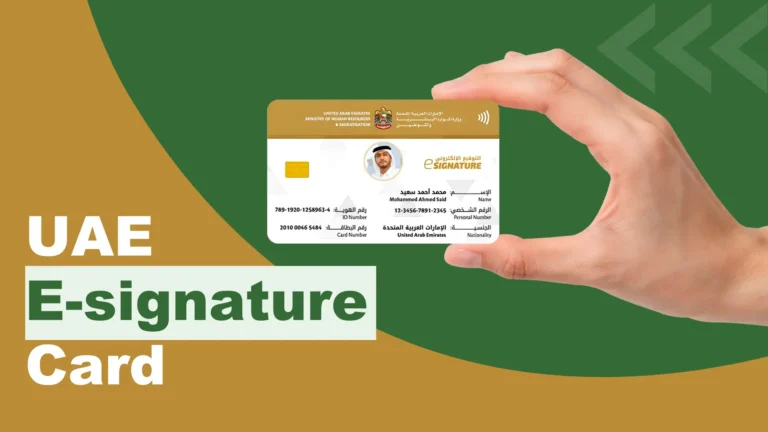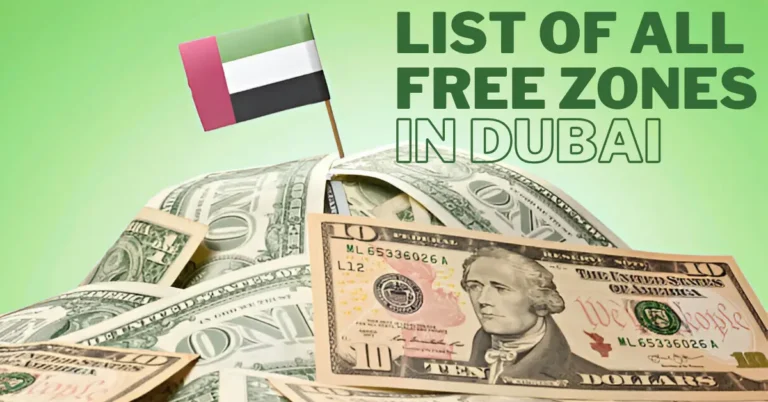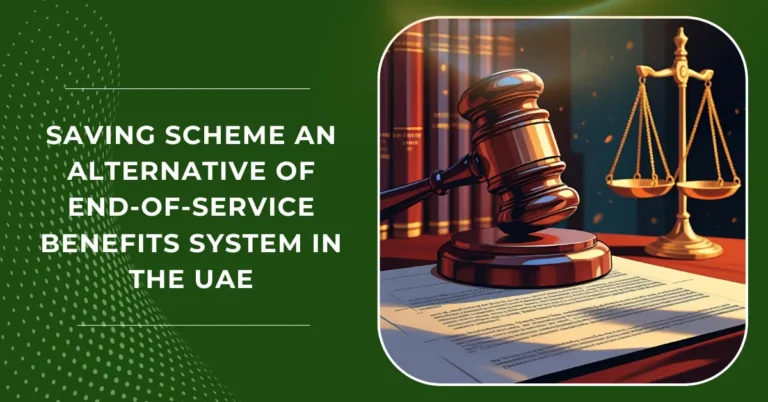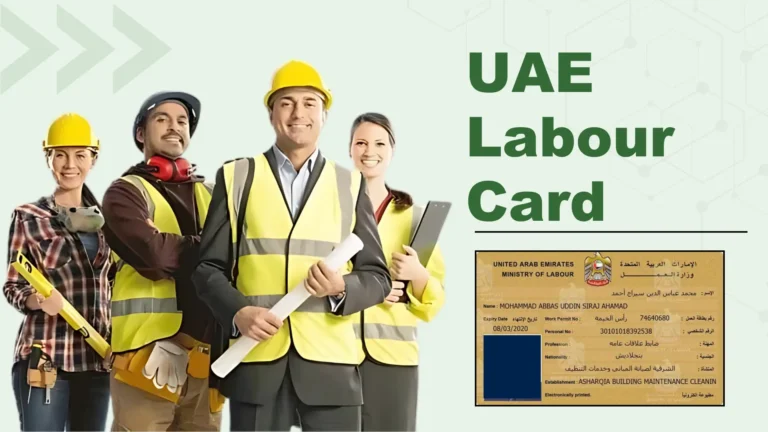List of Free Zones in United Arab Emirates 2026
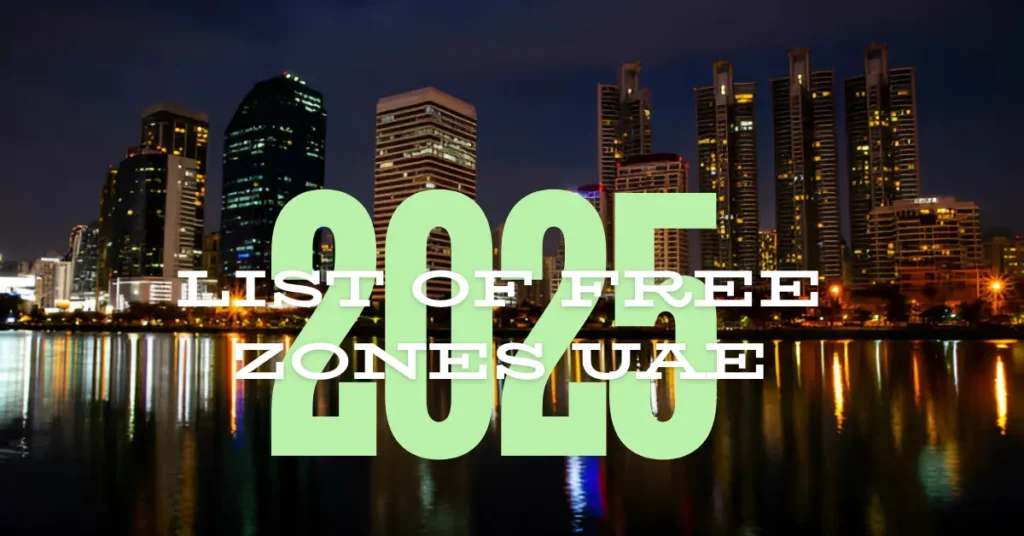
What Are Free Zones?
Free zones, also known as free trade zones, are special areas where businesses operate under their own set of rules. These zones are separate from the UAE mainland and are governed by individual free zone authorities.
Each free zone sets its own licensing terms, business activities, and office requirements. Most companies in these zones can only trade within the zone or globally, unless they get specific permissions to sell in the UAE mainland.
Free Trade Zones in the UAE
The UAE is one of the most business-friendly countries in the world. A major reason is the wide network of free zones, designed to attract foreign investors and entrepreneurs.
These zones offer full foreign ownership, zero import or export taxes, and a smooth company setup process. They are ideal for startups, SMEs, and international firms looking to expand in the region.
As of 2026, UAE free zones continue to play a key role in national growth. New rules are aligning these zones more closely with national labour, tax, and Emiratisation policies.
Whether you’re an employee or business owner, working in or with a UAE free zone gives you direct access to high-growth markets. Each zone is tailored to industries like tech, healthcare, finance, media, logistics, and more.
With over 40+ free zones spread across all emirates, the UAE offers a flexible and scalable environment for any type of business. Factors such as labour laws and contract types also impact end-of-service benefits, which can easily be estimated using the gratuity calculator UAE.
How Free Zones Differ from the Mainland
| Aspect | Free Zone | Mainland |
| Ownership | 100% foreign ownership allowed | Previously required a local partner (now largely abolished) |
| Regulatory Authority | Managed by Free Zone Authority | Regulated by Department of Economic Development (DED) |
| Legal Framework | Operates under its own commercial laws | Follows UAE federal and local laws |
| Administrative Process | One-stop-shop for licenses, visas, and services | Multiple departments involved (e.g., DED, Immigration, Municipality) |
| Customs Duties | No UAE customs duty for goods within the zone; duty applies if entering mainland | Customs duties apply on imports entering the UAE |
| Capital Requirements | Set independently by each Free Zone Authority | Generally uniform, regulated by DED |
| Market Access | Cannot trade directly in the UAE mainland without a local distributor | Free to trade anywhere within the UAE |
| Target Audience | Ideal for international trading, re-exports, or service-based firms | Suitable for local service providers and retail businesses |
Key Benefits of Setting Up in a UAE Free Zone
Setting up in a UAE free trade zone offers several key benefits for businesses:
- Full foreign ownership: Investors can own their companies outright without needing an Emirati partner or sponsor. This autonomy is a major draw for international entrepreneurs.
- Tax advantages:
- Corporate Tax Exemption: Free zone companies have enjoyed extensive tax incentives. Until recently, they were typically exempt from corporate income tax, and even with the UAE’s introduction of a federal corporate tax in 2023, eligible free zone companies can still benefit from a 0% tax rate on qualifying income.
- Personal Income Tax Exemption: There are also no personal income taxes in the UAE.
- Import and Export Tax Exemptions: Many free zones offer customs duty exemptions, goods can be imported and re-exported from the free zone without duties, as long as they don’t enter the UAE mainland.
- Simplified setup and Licensing: Free zones streamline the business setup process. The zone authority usually assists with all paperwork, from trade license issuance to visa processing for employees. Office space (from flexi-desk packages to warehouses) is often readily available within the zone. This one-stop administrative support makes it quicker and easier to establish a company compared to some mainland procedures.
- Repatriation of profits: Companies in free zones can repatriate 100% of their profits and capital. There are no foreign exchange controls, allowing businesses to move money freely.
- Specialized ecosystems: Many free zones are industry-specific, clustering similar businesses together. This creates networking opportunities and access to specialized facilities. For example, there are free zones for media companies, healthcare, manufacturing, finance, and more, each providing sector-focused services and infrastructure.
- World-Class Infrastructure: Free zones provide state-of-the-art facilities, including offices, warehouses, industrial plots, and logistical support.
- Assistance with Labor Recruitment and Visas: Free zones often provide assistance with employee visa processing and offer a diverse, multicultural workforce.
- No Currency Restrictions: Businesses can conduct transactions in any currency without limitations.
List of Free Trade Zones in the UAE (by Emirate)
The UAE has over 40+ Free Zones spread across its seven emirates, each focusing on specific industries or offering general business activities.
Great, I’ll compile a categorized list of all free zones in the UAE by emirat, just the names, no descriptions, and completely plagiarism-free. I’ll let you know as soon as it’s ready.
Official Free Zones in the UAE, by Emirate
Dubai
- Dubai Airport Free Zone (DAFZA)
- Jebel Ali Free Zone (JAFZA)
- Dubai CommerCe city (DCC)
- Dubai Design District (D3)
- Dubai Healthcare City (DHCC)
- Dubai International Academic City (DIAC)
- Dubai International Financial Centre (DIFC)
- Dubai Internet City
- Dubai Knowledge Park
- Dubai Media City
- Dubai Multi Commodities Centre (DMCC)
- Dubai Production City (IMPZ)
- Dubai Science Park (DSP)
- Dubai Silicon Oasis (DSO)
- Dubai South
- International Humanitarian City (IHC)
- Meydan Free Zone
- National Industries Park (NIP)
- Dubai Maritime City
- Gold & Diamond Park
- Dubai Textile City
- Dubai Auto Zone (DAZ)
- Dubai Industrial Park (Dubai Industrial City)
Abu Dhabi
- Abu Dhabi Global Market (ADGM)
- Khalifa Industrial Zone (KIZAD, also Khalifa Economic Zone Abu Dhabi – KEZAD)
- Masdar City Free Zone
- Abu Dhabi Airports Free Zone (ADAFZ)
- twofour54 (Media Zone Authority)
- Industrial City of Abu Dhabi
Sharjah
- Sharjah Airport International Free Zone (SAIF)
- Hamriyah Free Zone
- Sharjah Media City (Shams)
- Sharjah Publishing City Free Zone
- Sharjah Research, Technology & Innovation Park (SRTIP)
- Sharjah Healthcare City
Ajman
- Ajman Free Zone
- Ajman Media City
Ras Al Khaimah
- Ras Al Khaimah Economic Zone (RAKEZ)
- Ras Al Khaimah Maritime City Free Zone
- RAK Digital Assets Oasis (RDAO)
Fujairah
- Fujairah Free Zone
- International Free Zone Authority (IFZA)
- Fujairah Creative City
Umm Al Quwain
- Umm Al Quwain Free Trade Zone
Conclusion
UAE free zones in 2026 remain a powerful gateway for business. They offer full ownership, smooth setup, and strong financial perks. New rules now link free zones closer to the mainland economy. With dual licensing, tax awareness, and improved labor rights, companies get flexibility and protection. It’s a smart launchpad for startups and growing firms. Free zones now blend innovation with national goals.


